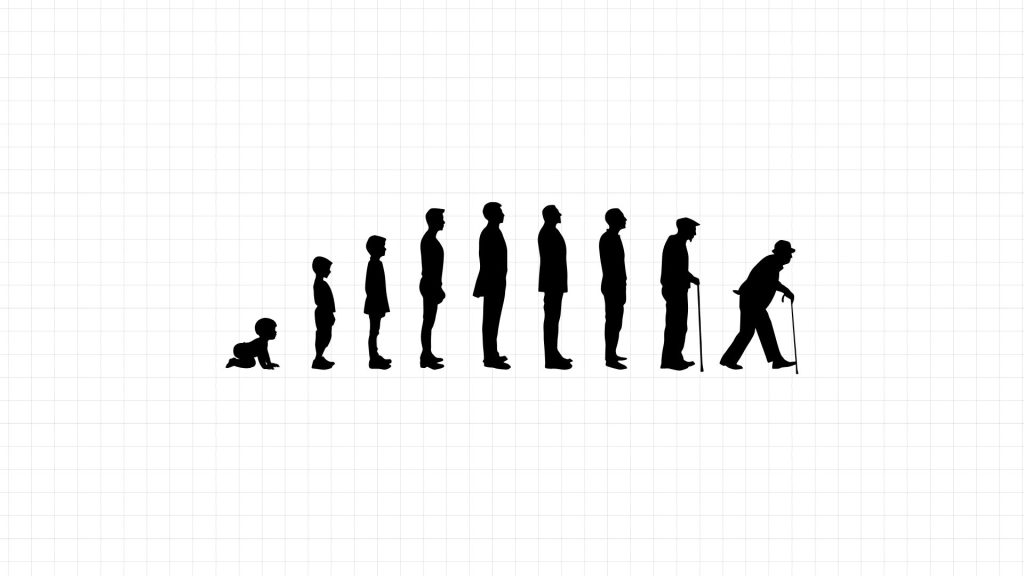Want to know which generation you belong to and what that says about you?
The Generation Calculator takes the guesswork out of it. Plug in your birth year and instantly find your generational label: Gen Z, Millennial, Gen X, Boomer… maybe even Silent or Greatest.
But the real question isn’t just when you were born. It’s who you are because of it.
What shaped your worldview? Why do you value certain things over others? Why does your boss think in a completely different way than you do?
This tool does more than slap a label on you. It unlocks context—cultural, historical, emotional—that helps you understand yourself (and others) with new clarity.
Let’s explore why that matters.
Generation Calculator
What’s a Generation, Really?
You’ve heard the terms: Gen Z. Millennials. Boomers. But what do they really mean?
A generation isn’t just a group of people born around the same time. It’s a cohort shaped by the same defining events—wars, technological revolutions, economic crashes, pop culture movements—that leave a deep, emotional imprint.
And each generation develops its own values, habits, and even language.
Think about it:
- Why do Boomers prefer phone calls while Gen Z lives on text?
- Why do Millennials chase purpose in work while Gen X is all about security?
- Why is Gen Alpha growing up speaking to AI before they even learn to write?
These aren’t some words. They’re cultural fingerprints. Proof of the world that raised you.
And it all starts with your birth year.
Why Use a Generation Calculator?
Here’s what this calculator gives you in under 3 seconds:
- Instant clarity on your generational identity
- A snapshot of values and traits linked to your group
- Context around major events that shaped your worldview
- A cheat sheet for understanding other generations—at work, at home, and everywhere in between
Curious about your generational personality? Want to understand why your Gen X boss thinks your Millennial mindset is “too idealistic”? Or why your Gen Z teammate expects flexibility over hierarchy?
Answers are coming. But first, let’s break down the generations themselves.
Generation Breakdown: What Makes Each One Tick?

Here’s a closer look into each generation the calculator recognizes—and what defines them.
Silent Generation (1928–1945)
- Shaped by: The Great Depression, WWII
- Known for: Discipline, loyalty, modesty
- Cultural values: Duty over desire. Sacrifice over self-expression.
They didn’t speak out much (hence the name), but they built the foundation for the modern world. Raised in scarcity, they value stability more than risk.
Baby Boomers (1946–1964)
- Shaped by: Post-war optimism, the civil rights movement, television
- Known for: Hard work, competitiveness, optimism
- Cultural values: Status, progress, and achievement
Boomers grew up in the American Dream era, and they’ve been chasing it ever since. They’re the most traditional of modern generations, but also the most influential.
Generation X (1965–1980)
- Shaped by: Divorce rates, MTV, the rise of computers
- Known for: Independence, skepticism, work-life balance
- Cultural values: Flexibility, practicality, distrust of institutions
Gen X was the “forgotten middle child” between two loud generations. They’re fiercely self-reliant, raised by latchkey living and grunge culture.
Millennials (1981–1996)
- Shaped by: 9/11, smartphones, the Great Recession
- Known for: Idealism, collaboration, side hustles
- Cultural values: Purpose, balance, authenticity
They’re often misunderstood as entitled, but Millennials redefined work and lifestyle around meaning. They value impact over income.
Generation Z (1997–2012)
- Shaped by: Social media, climate anxiety, COVID
- Known for: Activism, diversity, digital fluency
- Cultural values: Fluidity, inclusion, mental health
Gen Z was born connected. They live online, advocate for justice, and aren’t afraid to burn down broken systems.
Generation Alpha (2013–2025)
Shaped by: AI, tablets before textbooks, remote everything
Known for: TBD (they’re still growing!)
Cultural values: Still forming, but likely to value tech, customization, and instant access
They’re the first generation born entirely in the 21st century. And they’ll change the world in ways we haven’t even imagined yet.
Don’t Forget These Essentials
Want to dive deeper into generational traits and tech?
Here are 3 powerful tools/devices to complement your journey:
- The Generation Myth by Bobby Duffy – A myth-busting book that helps you cut through stereotypes and understand the real data behind generational divides.
- Digital Timer Cube – Perfect for Gen Z and Millennials who thrive on focus sprints, time blocking, and remote work flow.
- Retro Bluetooth Radio Speaker – A fun nostalgic nod for Boomers and Gen Xers who miss that analog feel but still want smart features.
So… Why Does This Matter?

Because generational tension is everywhere.
Workplace misunderstandings. Family communication gaps. Marketing that misses the mark.
But when you understand the forces that shaped someone’s generation, things start to click. You stop judging and start empathizing.
You don’t just see a “Boomer stuck in the past.” You see someone raised on postwar dreams and nightly news.
You don’t just see a “lazy Gen Z.” You see someone navigating a future with climate collapse, economic uncertainty, and digital overload.
That’s why this calculator isn’t just a toy. It’s a bridge. Between you and them. Between history and now.
What Happens After You Use the Calculator?
You’ll get your generational label—but more importantly, you’ll get a map. A map that explains why you think the way you do, what values drive your decisions, and how you compare to other generations.
Understanding your generation is a cheat code to:
- Improving communication at work
- Navigating family dynamics
- Marketing to the right audience
- Building teams that actually click
- Seeing your own life story with fresh eyes
Frequently Asked Questions
What is a generation calculator?
It’s a tool that uses your birth year to identify which generational cohort you belong to—like Gen Z, Millennial, etc.
Why are generations important?
They help explain how historical events shaped different values, behaviors, and expectations across age groups.
Can two people born in the same year be in different generations?
Not usually. But those on the cusp—called “cuspers”—may identify with traits from both generations.
How accurate is a generation calculator?
It’s as accurate as the general consensus from sociologists, but personal identity varies. Use it as a guide, not a rulebook.
How can knowing my generation help me?
It improves your self-awareness, helps you understand others, and gives you a unique lens to view societal change.
This website earns commissions through affiliate links, including those from Amazon and other partners. Purchases made via these links may provide us with a small commission at no extra cost to you.






